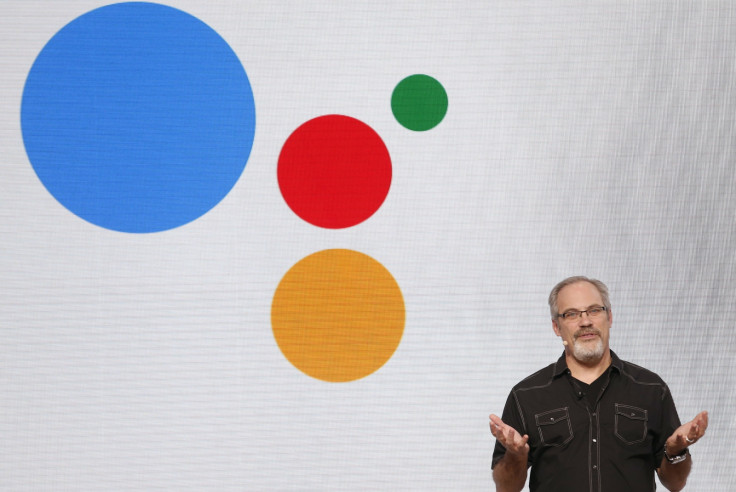Google doesn't really know what it's doing with its Assistant
Assistant AI is coming to cars, TVs and smart-home devices – but is it fit for purpose?

In May 2016, Google unveiled Assistant, a voice-controlled personal (you guessed it) assistant that would answer user's questions, prompt them about upcoming meetings and generally interact with them like a real person would.
At the time it was limited to Google's Home speaker and integrated into the Allo app. Despite this, Google CEO Sundar Pichai said Assistant would offer "an ambient experience that extends across devices." As it was limited to a speaker and an app, how it was going to achieve this was unclear at the time.
Things became slightly more clear in October when the company released the first truly Google smartphone – the Pixel. The phone had Assistant deeply embedded inside the version of Android running on the device and we could finally see how this was a potentially powerful alternative to Apple's Siri, Microsoft's Cortana and Amazon's Alexa.
Is Google Assistant on all Android phones?
No one really knew. Until last week that it, when Google announced that it would be bringing Assistant to smartphones running recent versions of Android from manufacturers like Huawei, LG and Samsung. Assistant is also embedded in Android Wear 2.0 devices and it is also set to be included in future versions of Android TV and Android Auto.
The question is, why was Google's strategy of opening up Assistant to a range of services and devices not made explicit in May of last year when it launched?
Maybe, Google just doesn't really know what it's doing.
For all that Google likes to be known for its moonshots and wacky offices, what the company – now known as Alphabet – is built on, is selling ads. What makes this possible is its search engine, which dominates the internet and works so well because it gets better with the more information which is fed into it.
With voice seen by many as the main computing paradigm of the coming decades, Google is in a position to dominate once again. Its Android operating system accounts for over 80% of all new smartphones sold, and even if only a fraction of these devices had Assistant built-in, then it would make it easily the most used digital assistant on the planet.
Instead, Google chose exclusivity – initially at least.
Making Pixel more mega?
Most people saw the move as an attempt to make the Pixel phones more attractive over the multitude of options on the market today, everything from iPhones to Samsung's Galaxy S7 and beyond.
The official reason Google gave for failing to outline its strategy from the beginning? "It was a new product and we wanted to make sure we took the baby steps required," Gummi Hafsteinsson, product lead for Assistant said.
So six months down the line is Assistant now the perfect digital companion, and ready for use on all smartphones? After using the Pixel smartphone since it launched, I can confirm that it is not. Assistant is getting better, but still has a long way to go to become the seamless and reliable service Google promises.
As technology analyst Ben Thompson points out: "The surest route to a useful product is not through building the perfect assistant, but through building an iterative process that results in continuous improvement."
If Google is now trying to spin that it planned all along to make Assistant widely available, then it begs another question – why didn't it tell its OEM partners?
Keeping shtum at Sasmsung
Samsung is by far the biggest Android smartphone maker, and critical to the continued success of the platform, given it launches smartphones in pretty much every single price bracket. But it seems as if Google didn't inform the South Korean company of its plans, given that Samsung spent a lot of money to acquire Viv, a AI-power assistant built by the creators of Siri.
According to people familiar with Samsung's plans, the company will later this month launch its own Bixby assistant on the Galaxy S8 smartphone, deeply integrating it into its version of the Android operating system. Of course Samsung will struggle to make Bixby as compelling as Google's Assistant given the relative dearth of information it will have to learn from, but it also means that Samsung won't be feeding any information directly to Google's assistant.
Huawei, the world's second biggest Android smartphone maker is reportedly building its own digital assistant, albeit for the Chinese market only, but should it prove a success, then there is no reason it won't be included on all Huawei smartphones in the future.
So either Google has completely changed it strategy towards its Assistant in the space of six months, or it singularly failed to inform its biggest partners of its plans. Either way, if Google wants Assistant to emerge as the de facto voice interface for billions of people around the globe, it needs to get its message right, and begin telling the world exactly what it plans on doing.
© Copyright IBTimes 2025. All rights reserved.






















